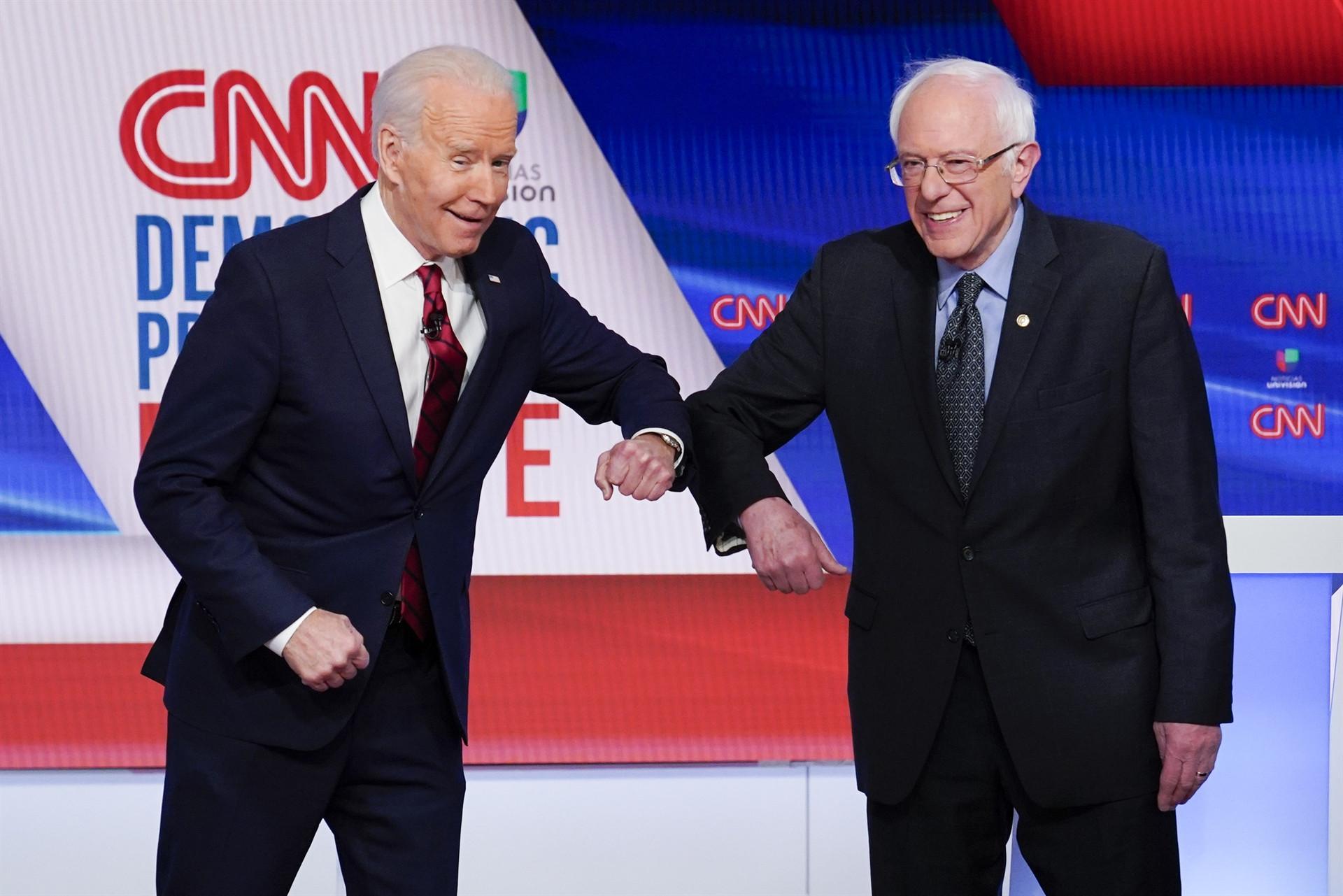
AP Photo
Bernie Sanders endorsed Joe Biden's presidential campaign on April 13, encouraging his progressive supporters to rally behind the presumptive Democratic nominee in an urgent bid to defeat President Donald Trump.
"I am asking all Americans, I'm asking every Democrat, I'm asking every independent, I'm asking a lot of Republicans, to come together in this campaign to support your candidacy, which I endorse," the Vermont senator said in a virtual event with Biden.
The backing came less than a week after Sanders ended his presidential campaign, which was centered around progressive policies such as universal health care. It's a crucial development for Biden, who must bridge the Democratic Party's entrenched ideological divides to put together a coalition that can beat Trump. Democratic disunity helped contribute to Hillary Clinton's loss to Trump in 2016.
Perhaps eager to avoid a repeat of that bruising election year, Sanders offered his endorsement much earlier in the 2020 campaign. Sanders backed Clinton four years ago, but only after the end of a drawn-out nomination fight and a bitter dispute over the Democratic platform that extended to the summer convention.
Biden and Sanders differed throughout the primary, particularly over whether a government-run system should replace private health insurance. Biden has resisted Sanders' "Medicare for All" plan and has pushed instead a public option that would operate alongside private coverage.
Appearing in a split screen with Biden, Sanders said there's "no great secret out there that you and I have our differences."
But Sanders said the greater priority for Democrats of all political persuasions should be defeating Trump.
"We've got to make Trump a one-term president," he added. "I will do all that I can to make that happen."
The coronavirus prevented Biden and Sanders from appearing together in person on April 13. But they made clear they would continue working together, announcing the formation of six "task forces" made up of representatives from both campaigns to work on policy agreements addressing issues including the economy, education, criminal justice and immigration.
Biden, 77, has already made some overtures to progressives by embracing aspects of Sanders' and Sen. Elizabeth Warren's policies, like much of Sanders' student debt forgiveness proposal and Warren's bankruptcy plan. He also backed Warren's bankruptcy plan.
Sanders, 78, is sure to remain a force throughout the campaign. When he ended his candidacy last week, he said he would keep his name on the ballot in states that have not yet voted in order to collect more delegates that could be used to influence the party's platform. He didn't say on April 13 whether he would continue to fight for those delegates.
Still, Sanders and Biden emphasized their mutual respect for each other on April 13.
Sanders referred to the former vice president as "Joe." Biden answered him repeatedly as "pal." The two men asked the other to give regards to their wives, Jill Biden and Jane Sanders.
Biden told Sanders: "I really need you, not just to win the campaign but to govern."
Even with Sanders' dozens of campaign stops for Clinton -- a record he brought up repeatedly to push back at the idea that he was partly to blame for her defeat -- April 13's conversation was something voters never saw between the 2016 rivals. Whether that translates to how Sanders' progressive base sees Biden is not yet clear.
Indeed, Sanders will be a key ally for Biden not just in winning over skeptical progressives but also in appealing to young voters, a key Democratic voting bloc that has long supported Sanders over his former primary rivals by huge margins.
Biden and Sanders on April 13 both emphasized the need to address the challenges confronting young people during the pandemic, with Sanders describing "a generation of young people who are experiencing crisis after crisis."